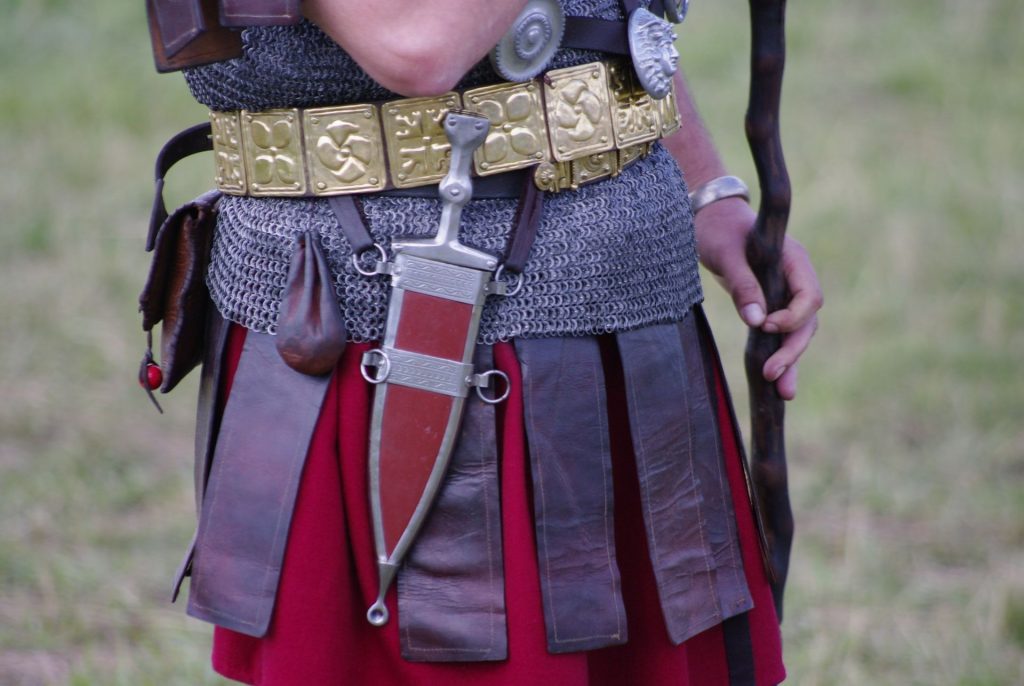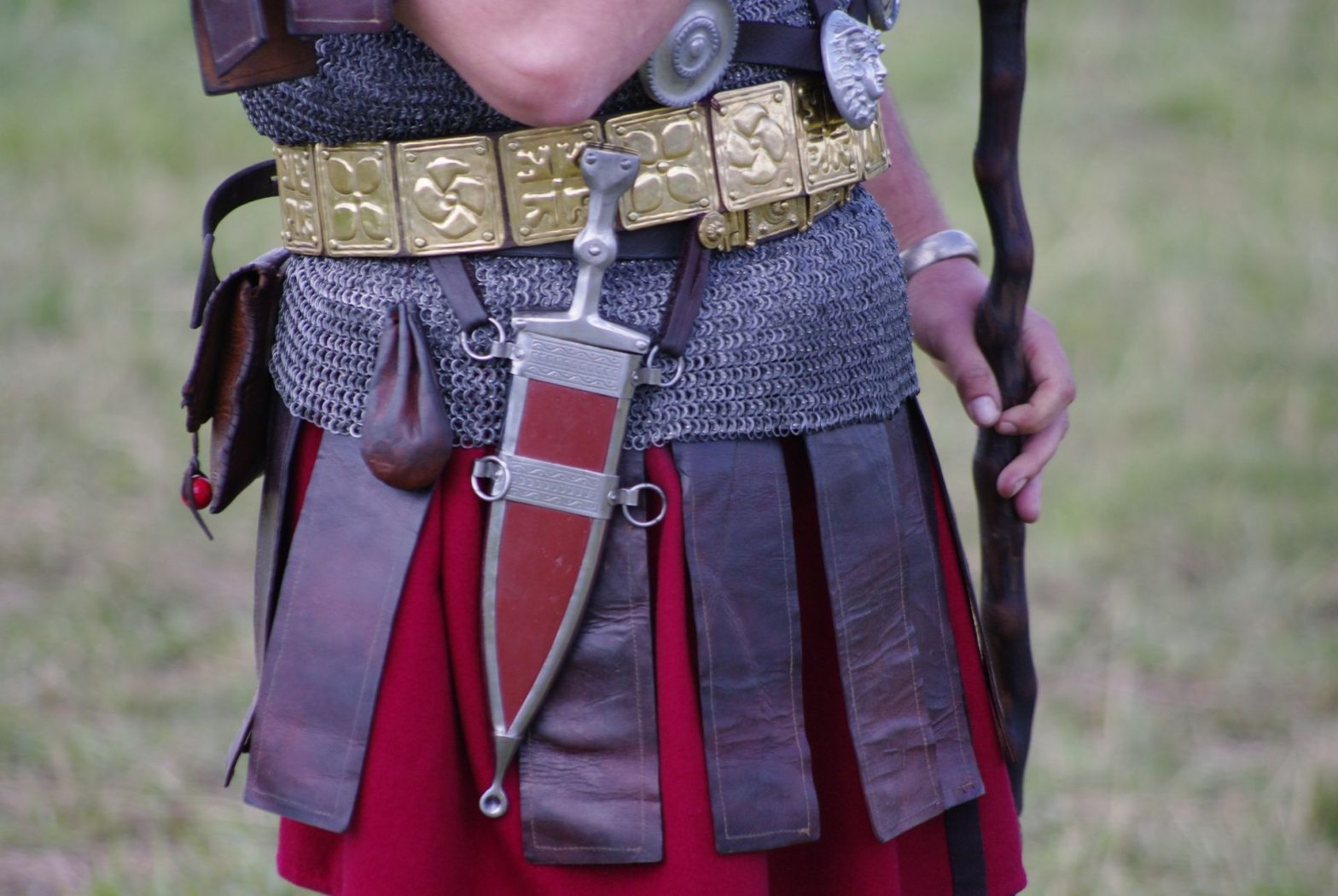
Ephesians 6:14 NIV
14 Stand firm then, with the belt of truth buckled around your waist, with the breastplate of righteousness in place,
The belt of truth is the first piece of the “full armor of God” listed in Ephesians 6:10–17. In KJV it’s said “having your loins girt about with truth” (Ephesians 6:14 KJV)
Having your loins girt about – The “girdle, or sash,” was always with the ancients an important part of their dress, in war as well as in peace. They wore loose, flowing robes; and it became necessary to gird them up when they traveled, or ran, or labored. The girdle was often highly ornamented, and was the place where they carried their money, their sword, their pipe, their writing instruments, etc.; see the notes on Matthew 5:38-41. The “girdle” seems sometimes to have been a cincture of iron or steel, and designed to keep every part of the armor in its place, and to gird the soldier on every side.
With truth – It may not be easy to determine with entire accuracy the resemblance between the parts of the armor specified in this description, and the things with which they are compared, or to determine precisely why he compared truth to a girdle, and “righteousness” to a breast-plate, rather than why he should have chosen a different order, and compared righteousness to a girdle, etc. Perhaps in themselves there may have been no special reason for this arrangement, but the object may have been merely to specify the different parts of the armor of a soldier, and to compare them with the weapons which Christians were to use, though the comparison should be made somewhat at random. In some of the cases, however, we can see a particular significancy in the comparisons which are made; and it may not be improper to make suggestions of that kind as we go along. The idea here may be, that as the girdle was the bracer up, or support of the body, so truth is suited to brace us up, and to gird us for constancy and firmness. The girdle kept all the parts of the armor in their proper place, and preserved firmness and consistency in the dress; and so truth might serve to give consistency and firmness to our conduct. “Great,” says Grotius, “is the laxity of falsehood; truth binds the man.” Truth preserves a man from those lax views of morals, of duty and of religion, which leave him exposed to every assault. It makes the soul sincere, firm, constant, and always on its guard. A man who has no consistent views of truth, is just the man for the adversary successfully to assail.
